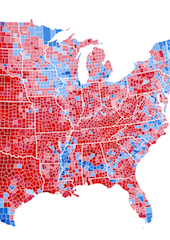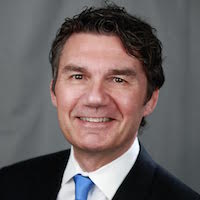Don’t Blame the Republicans for America’s Destruction
Why we need a Coffee Party movement.
October 3, 2013

Almost everything worth saying has been said about the Republican Party’s radicalization that has led to its obstructionist role during the entirety of Barack Obama’s presidency. Enough has been said about the stated, not just implicit goal of Republicans to refrain from governing but to “make this President fail” as Mitch McConnell put it so undemocratically at the beginning of the President’s first term.
As the devout execution of this anti-democratic strategy is culminating in the current government shutdown and the very real threat of a U.S. default, more serious questions ought to be raised.
And yet, enough has been said about the “false equivalence” which intends to blame both sides of the aisle in equal proportion for the paralysis that has been the signature of Congress ever since President Obama was elected.
If anything, Democrats — including the President — have to blame themselves for having caved to extremist demands from Republicans in the past and having failed to have an effective communication strategy in place to explain their policies to the American people.
Finally, enough has been written about the chasm within the Republican Party that has made conservatives the victims of minority archconservatives with no apparent way of defending themselves. This is, of course, a sham argument. Because if conservative were truly in a cooperative spirit, they would long have ditched the Tea Party.
Who is to blame?
So, who is to blame then? Well, in the end it all comes down to the American people. After all, we do pretend to live in a democracy. We do hold elections and we do have primaries to determine who runs for office. This set of democratic principles is, however, where it all breaks down.
Many commentators and analysts have explained how more mainstream conservatives fear that unless they side with the ultra-right, they might face primary opponents from the Tea Party and lose their precious seats in Washington. After all, that has happened. But who is to blame for that? The American people.
During the primary process, Republicans have increasingly chosen anti-government, anti-equality, anti-immigrant, really anti-everything candidates. But most shockingly, the majority of voters in those districts or states have then proceeded to vote such rascals into office. Who is responsible for that? The American people.
Again, people will say that gerrymandering is responsible for the fact that, especially in the South, archconservative seats are guaranteed in many districts for the House of Representatives. But we all know that after each 10-year census there is a reconfiguration of state districts. In most cases, the majority that reigns in state legislatures determines this. Who determines that? The American people.
And how about statewide office, such as U.S. Senator or Governor of a state? No gerrymandering here. Who votes such anarchists as Senator Cruz into office? The American people. Or to be fair, in this case, the people of the State of Texas.
So, even if Republican primaries produce a man or woman as a radical candidate for public office, such a candidate still has to find a majority of voters to win. So, who is responsible for that? The American people.
Why do those in need vote against their interests?
This leads us to the most intriguing question. Most red states have the highest unemployment numbers, the worst health care and health conditions and the worst educational systems. In short, red states rank at the very bottom of all social indicators. Equally, they rank at the very top of participation in federal programs to mitigate their poverty. And poverty in all of those states is surprisingly color-blind.
Why then is it that those states, sometimes with vast majorities, vote for individuals whose declared goals are in direct conflict with the self-interest of those who vote for them? Voters in these states support candidates that would like to defund not just Obamacare, but Social Security, Medicare and Medicaid, Head Start, educational subsidies and food stamps, services upon which vast numbers of people in these states depend.
In other words, we cannot blame the right-wing votes in red states on the fact that all of the so-called 1% of the United States have decided to register as voters there. As a matter of fact, the 1% prefers to live in New York or California, where life is better.
Some say that low levels of education in red states make people there more susceptible to being deceived by snake oil salesmen. In the end, this is a very elitist perspective, because being street smart has little to do with educational attainment.
Race or religion?
Others say that racial bias drives them more than in most blue states. But racism exists among the rich and poor, Democrats and Republicans, North and South. In the end, this is a very liberal perspective because — as pointed out — poverty is color-blind. The number of white people in poverty far outstrips the number of any minority (even if poor whites account for a lower percentage of their white cohort).
Some people say that it is the greater influence of religion in red states that makes them vote against their self-interest. This argument was first seriously advanced by Lawrence Harrison in his book “Underdevelopment is a State of Mind.”
In that book Harrison asked himself in 1985, why Latin America had made so little developmental progress when compared with much of Asia at the time. He concluded that it was related to Latin Americans’ deep Catholicism, a belief that he interpreted to condemn the poor to accepting their fate without seeking to change it, as this was God’s way.
I cannot entirely dismiss that there is a relationship between the need for religion in the absence of social safety, but this is far from having proof of the causality that the presence of religion causes poverty.
It is difficult to imagine that the ascetic life style of a Jesuit priest in solidarity with the poor is to encourage the poor not to better their lives. And how about Buddhist monks who follow similar principles of abstaining from worldly consumption in countries that have outstripped so many others in their economic and social advancement?
None of these answers and others satisfies my question, why so many people seem to vote eagerly against their self-interest.
This may lead us to capitulation as we slowly watch America’s disintegration into what some observers have already called a “failed state.”
Well, maybe it is this fatalism that is the answer to my question. Maybe Democrats — regardless of the election cycle — need to put some serious boots on the ground in red states and do their democratic (with a small “d”) duty of making the case for voting in your self-interest to those who don’t.
Let’s call it the Coffee Party Movement. We will need a lot of energy.
Takeaways
Why do so many people seem to vote eagerly against their own self-interest?
In the end, it all comes down to the American people. After all, we do pretend to live in a democracy.
Even if primaries produce a radical candidate, that candidate has to find a majority of voters to win.
Red states rank at the bottom of social indicators and at the top of federal programs to mitigate poverty.
We cannot blame the right-wing votes in red states on the 1% of the US having decided to vote there.
Being street smart has little to do with educational attainment.
The number of white people in poverty far outstrips the number of any minority.

